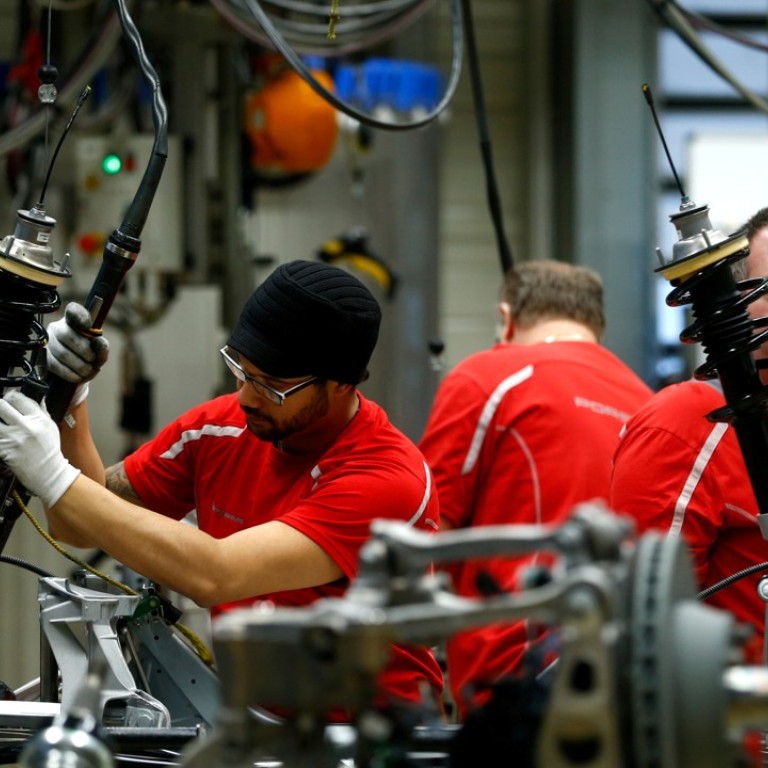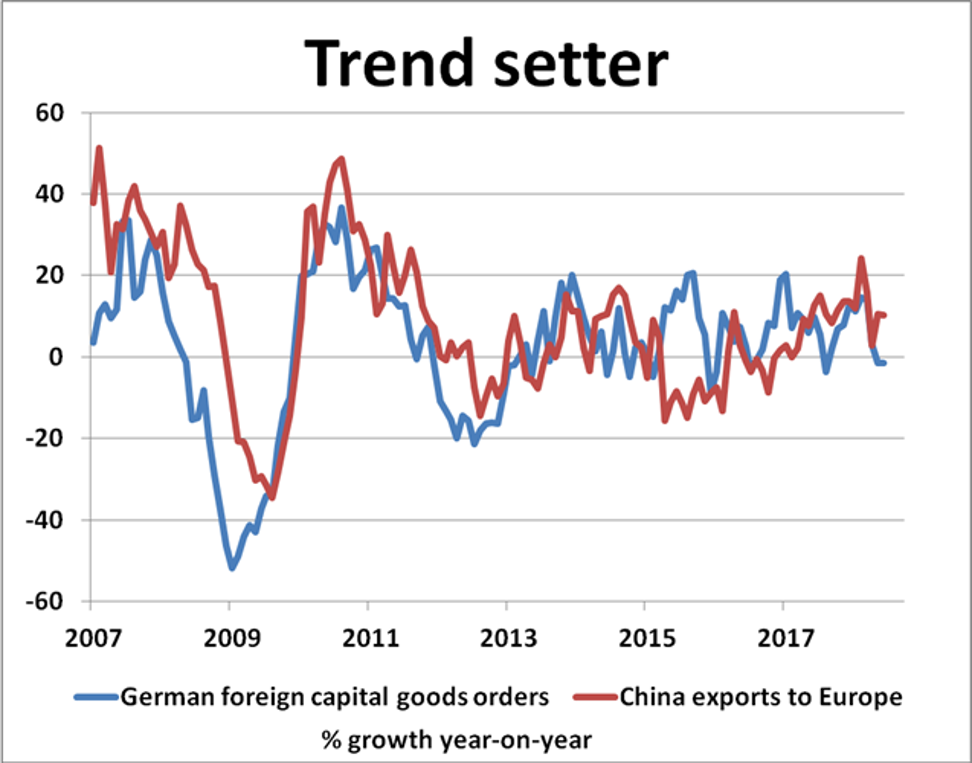
Europe’s slowdown leaves China’s exporters with another big gap to fill amid trade war with US
David Brown says as the German economic spring appears to be winding down, and with Europe expected to have a hard landing, China should be looking less to exports
There used to be a time when Germany’s Bundesbank ruled the monetary policy roost in Europe, poring over manufacturing orders data for vital interest rate clues. Beijing’s planners should be doing the same thing, as German orders foreshadow a worrying slowdown in global business activity.
It is not just Germany’s economy showing signs of fatigue, as Europe’s recovery is also looking more frayed around the edges these days. The European Central Bank’s super-stimulus programme will soon end and add to the gloom. Beijing should take note as it is another canary down the coal mine signalling tougher times ahead.
With a market of 740 million consumers, Europe is an important destination for Chinese exports. A downturn in European demand for China’s goods could be bad timing for Beijing in the midst of its deepening trade war with America. The prospect of slower world trade, weaker global economic activity and the shadow descending over international equity markets compound the problem. Beijing needs a bold reflation plan to help soften the external blow while boosting the domestic economy. No time like the present to get those policy changes into gear.
On the surface, Germany looks surprisingly sprightly with recent gross domestic product figures showing its economy picked up more speed in the second quarter, expanding at an annual rate of 2 per cent, compared to 1.5 per cent in the first three months of the year. It is a boost for government hopes of hitting its 2.3 per cent GDP target this year, well above the economy’s sluggish 1.3 per cent average growth rate for the past 10 years.
Some say it could be the renaissance of a German economic spring, while others put it down to a temporary blip thanks to the ECB’s super-stimulus programme, which is soon to be withdrawn. German consumers and businesses certainly enjoyed a mighty boost from easy rates, fast money and a cheap euro exchange rate but it was never meant to last forever. The reality is that Germany and Europe’s economy should come back down to Earth with a bump.
Recent trends show European growth momentum has already lost steam since reaching a peak at the start of the year
Now that euro-zone inflation has breached the ECB’s 2 per cent target, hitting 2.1 per cent in July, Germany’s Bundesbank will be pushing even harder for a tougher monetary policy response, even though German orders data argues for greater caution as the wind spills out of the economy’s sails. Domestic orders are running 3 per cent below a year ago, export orders growth is close to a standstill and, critically, underlying foreign demand for German capital goods – a proxy for global trade – is down 1 per cent over the past 12 months.
Watch: BMW feels impact of US-China trade war
Seeing Europe’s slowdown in the global picture provides plenty of food for thought for Beijing. America’s economy is booming but growing trade tensions with Washington cast a dark pall over China’s export prospects there. Asian export markets might provide a buffer, but not in the event of a major downturn in global trade.
Beijing needs to keep a steady head and return to basics, continuing to steer the economy away from export dependence to a consumer and investment-driven powerhouse. It means keeping households and businesses upbeat with encouraging monetary and fiscal policy leads.
The global picture may look challenging but Beijing retains a formidable war chest of policy options to deal with it. It just needs to invoke them.
David Brown is chief executive of New View Economics


